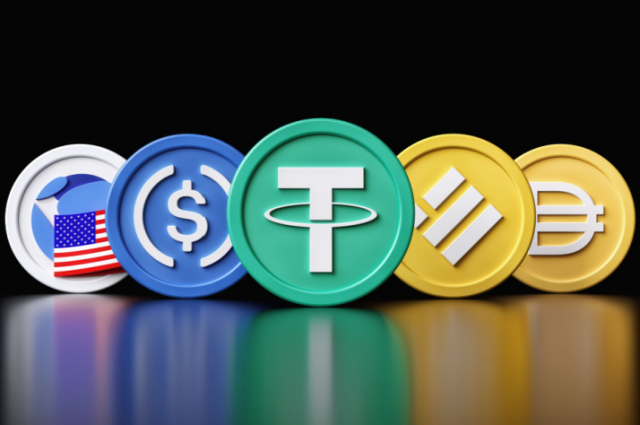
It has been confirmed that the government transition committee and financial authorities are discussing the issuance of a won-based stablecoin through a regulatory sandbox. A high-ranking government official familiar with the government transition committee stated on the 9th, "As time is of the essence for stablecoins, there is a consensus within the committee to proceed through a regulatory sandbox and launch it after review if a consortium joins." A high-ranking financial authority official also said that "it is entirely possible" to do so through a regulatory sandbox. A regulatory sandbox is a system that temporarily suspends or exempts regulations for new technologies that are difficult to launch due to insufficient related laws. Currently, the possibility of forming a large consortium involving banks, platform companies, fintech firms, and virtual asset exchanges is being discussed. The government's consideration of introducing a won-based stablecoin through a regulatory sandbox is aimed at capturing both speed and stability. Given that preparing and implementing related laws will take considerable time, the plan is to open the door first and verify potential risks through a demonstration project. The academic and virtual asset industries have also suggested that if immediate legislation is difficult, they should respond to the global stablecoin market expansion by utilizing a regulatory sandbox. This is because dollar stablecoins like Tether (USDT) and USDC occupy over 90% market share, and as their use in real-life payments and remittances increases, concerns about monetary sovereignty and industry competitiveness weakening have emerged. Domestic legislation is being proposed, but the current pace is seen as insufficient to keep up with global market trends. Last month, Democratic Party lawmaker Min Byung-deok proposed a Digital Asset Basic Law including a stablecoin regulatory framework. Even if the bill passes in the second half of this year, actual implementation is expected around early 2027 after preparing enforcement ordinances and rules. Compared to major countries like Europe and Japan, which institutionalized in 2023, and Hong Kong implementing a regulatory sandbox, this would lag behind by several years. The US recently passed the GENIUS Act for stablecoin regulation in the Senate. An industry insider emphasized that the stablecoin market operates on network economics and becomes harder to respond to the later it is addressed. The Bank of Korea's high concerns about stablecoins are also a background for the government's regulatory sandbox review. By introducing it experimentally before full institutionalization, they can examine market risks and areas for improvement and reflect them in final legislation. The bank is worried that indiscriminate won-based stablecoin issuance could undermine monetary credibility and market stability. If the won-based stablecoin introduction through a regulatory sandbox becomes a reality, it is expected to be launched by a large consortium involving banks, fintech and platform companies, and virtual asset businesses, rather than a single company. With stablecoin institutionalization becoming clearer, alliances between banks and non-bank companies are already accelerating. Meanwhile, virtual asset businesses are gaining momentum for entering the institutional realm. The Ministry of SMEs and Startups is pursuing the removal of virtual asset businesses from the restricted venture business list after eight years. On the 9th, the ministry announced a partial amendment to the Venture Business Promotion Special Act enforcement ordinance, proposing to remove virtual asset-related businesses from the restricted business list. The existing list included "blockchain-based cryptocurrency trading and brokerage." This revision will allow innovative virtual asset businesses with technological and business potential to be recognized as venture businesses, and existing venture businesses can also enter the virtual asset sector.
- Reporter Shin Jung-seop
< Copyright ⓒ Decenter, reproduction and redistribution prohibited >







